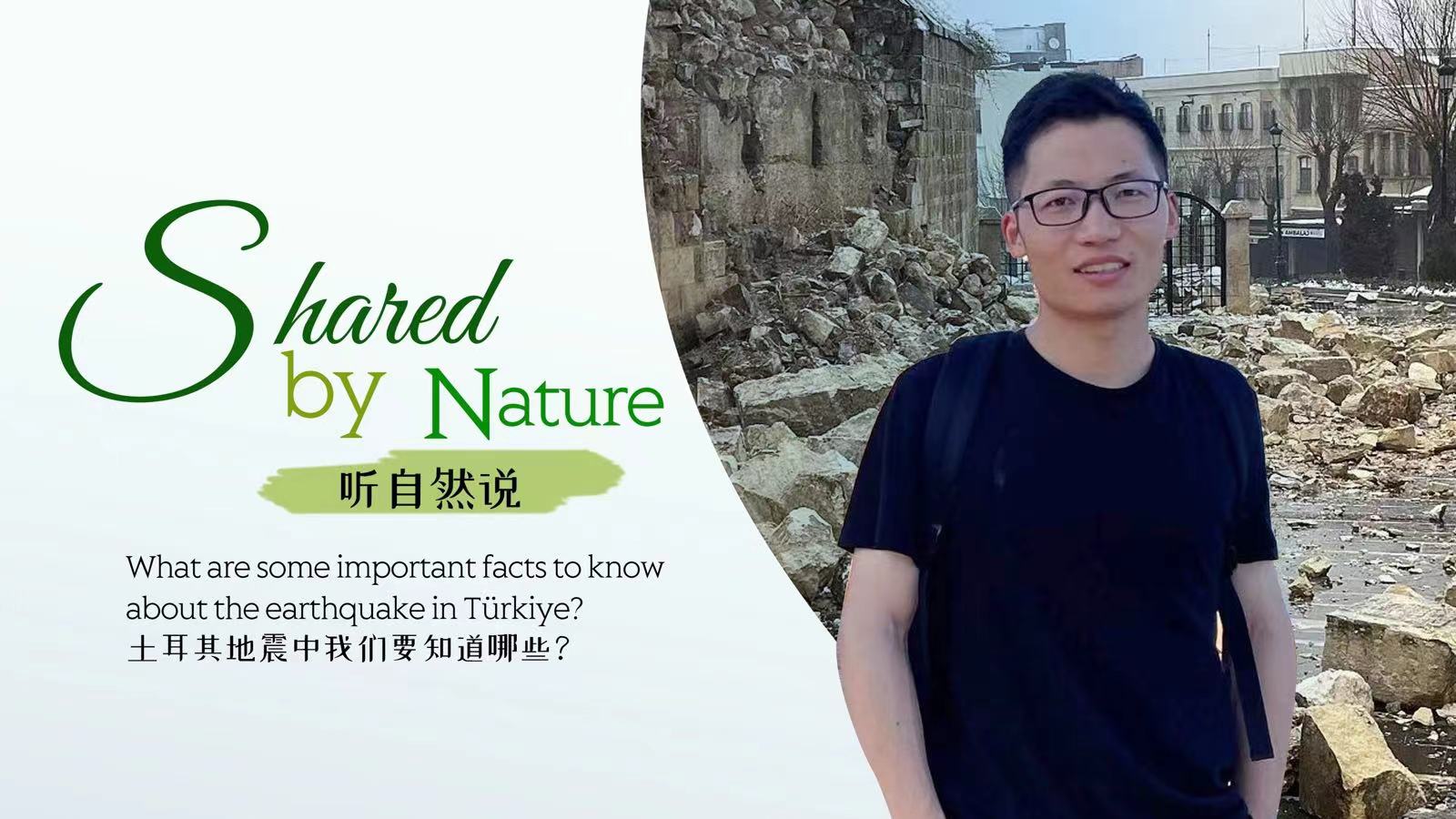02:30

Editor's note: "Shared by Nature" invites experts and scholars from around the world to share their knowledge of major issues in nature, such as climate change, biodiversity conservation and environmental protection. In this edition, we talked to Li Chuanzhi, a PhD candidate for geology at Ocean University of China and a content creator at Zhihu, to talk about the possible secondary hazards after the major earthquakes in Türkiye and the corresponding precautionary measures.
The earthquake that struck Türkiye is notable for its strong magnitude, shallow origin, and wide-spread effects, according to Li Chuanzhi. Furthermore, the repeated aftershocks that occurred in the mountainous area late at night have made the rescue work even more difficult. Li also said the aftershocks, minor or strong, may continue for months. Given the complex situation, Li suggests more attention in the following aspects.
Be wary of flimsy structures
Buildings that have survived the major quake might break from the damage in the following afterquakes, so people should stay away.
Low temperatures pose a challenge
Because the earthquake occurred in the middle of winter, heating facilities such as blankets, heaters, and wind and cold shelter need to be provided.
Location of the resettlement
Resettlement should be set up in areas that are not prone to geological disasters. Before deciding on a location, careful planning is required.
Psychological care and disinfection work
People in earthquake-affected areas may experience significant stress. Professional and timely consultation should be provided. Furthermore, authorities must prioritize prevention and disinfection efforts in the disaster area.
(Video edited by CGTN's Yu Rong and Zhang Hao.)
(If you want to contribute and have specific expertise, please contact us at nature@cgtn.com.)